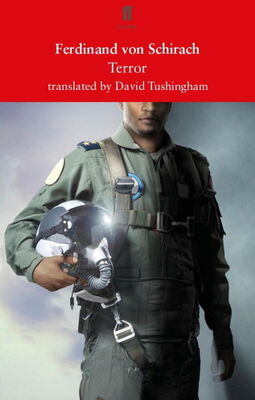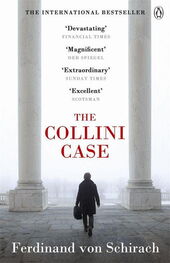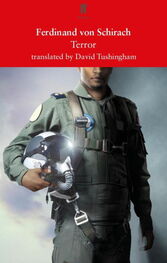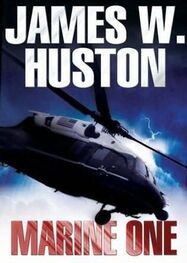A couple of weeks ago the newspaper of the Greek governing party, Syriza, published a cartoon of Wolfgang Schäuble. Its title was: ‘The negotiations have begun.’ Schäuble was shown in a Nazi uniform. The two speech bubbles said: ‘We insist on making soap from your fat’ and ‘We will only discuss turning your ashes into fertiliser’. This was clearly satire. And it was obvious from Schäuble’s spokesman how angry he was. But he said this was freedom of speech. In the latest edition of Charlie Hebdo Angela Merkel was depicted in the same uniform. She was pointing stooping Greeks in the direction of a gas chamber and underneath this stood: ‘Go in there, that’s where your debts will be written off.’ And the current cover shows the drowned body of a child refugee on a beach with a billboard in the background carrying a McDonald’s ad for ‘Two kids’ menus for the price of one’. I am convinced that solidarity will soon come to an end and the call ‘satire is free’ will quickly be forgotten. Yesterday one large German news agency wrote that ‘ Charlie Hebdo is losing sympathy’.
Ladies and gentlemen, everyone who is in the public eye – and many people in this room are – is exposed to criticism. This can hurt or upset anyone. Sometimes that criticism consists of mockery and ridicule, sometimes it is cruel and nasty, sometimes banal and stupid and unfortunately there are times when it can be intelligent and justified. We quarrel with it, write letters, make phone calls, complain to anybody who will listen and ultimately we might even sue in court. But even if it goes way beyond what is allowed, we don’t murder our critics and once we have calmed down again we know that they have to exist – even if we can’t abide them.
Should the rules be any different for religious communities? I don’t think so. I can find no justification for blasphemy to merit any special punishment today. Why should someone’s religion receive greater protection from insults than, for example, their sexual orientation, the colour of their skin or their nationality? I believe in the calm, free spirit of our constitution, in its superior tolerance and its benign view of humanity. And that is why I am convinced that religions – just like all other ideas too – may be exposed to criticism. And this is especially true when acts of violence are justified on religious grounds.
But the fundamental issue, ladies and gentlemen, is another one. Modern states came into existence because people were able to refrain from exacting personal justice. They transferred their anger and their need for revenge to the state. They handed in their weapons. The state alone should have the power to punish. It alone should be able to undertake proceedings recognised by all. The term ‘monopoly on violence’ has been in use since it was coined by the great sociologist of the last century Max Weber, but of course the practice itself is much older. It forms the contract between the citizens and their state, the foundation of our communal life: we refrain from violence and in return we are guaranteed orderly treatment. This was never easy. It took centuries to get this far. The history of this contract is the history of the development of the modern rule of law and it is through this that we became who we are now.
And this is why a terrorist attack cannot be compared with a husband killing his wife or a thief robbing a bank. It is not a breach of the rule of law: it is an attack on the rule of law. We carry out discussions in the newspapers, on television and on the internet supported by our constitution while the terrorists’ sole aim is to smash it into pieces. In the face of the reality of terrorism our declaration that ‘satire is free’ is naive and helpless. We talk about the finely calibrated boundaries of pencil drawings while Islamists’ appetite for murder is unsated. Their bloody deeds are not contributions to any discussion and their victims bear no guilt for these acts of personal justice – no matter whether what they did was permitted or not.
And what conclusions do we draw from all of this?
I remain convinced that enlightened democracies can only tackle terrorists, people who want to destroy our society, within the means of the law. This is the only way for a state based on justice to manifest its resilience and integrity. In our anger, in our desire for revenge, we are always in danger of forgetting this. Guantánamo is just one of the terrible examples of what happens when we do so.
But there is another consequence that is harder to measure and less obvious. You will certainly remember that representatives of the governments of almost all free nations declared after the attack that it had not only been an attack on life but an ‘attack on freedom of speech and of the press’. Those were the words of Angela Merkel, for example. And that is certainly what was planned. But in reality this terrorist act strengthened freedom of speech more than anything else. Soon after the attack, all over France and the whole of Europe, in Amsterdam, Berlin, Brussels, Lisbon, London, Madrid, Milan, Rome and Vienna, people took to the streets. On 11th January 2015 there were 1.5 million people in Paris and over 3.7 million across the country. One commentator observed that this was more people than had ever demonstrated together in France in support of a single cause since the French Revolution. Many of them carried banners with the words ‘Je suis Charlie’. They mourned for the dead and they demonstrated for the right to freedom of expression. I don’t think a basic right has ever had so much support.
That some of the staff of Charlie Hebdo left the magazine after the attacks is only too understandable. And the fact that other journalists no longer dare to express themselves freely about Islam is shocking. Perhaps prizes like this one can offer them some support.
However, the more profound truth is that it is not terrorists who will destroy our society. They cannot do that. We ourselves, ladies and gentlemen, are the only ones who can seriously endanger our values. Only we, the democrats, can damage democracy. And that can happen quickly. The populists are now on the rise. Politicians are demanding tougher laws and the secret services greater powers. Parties everywhere talk of a ‘threat of the Islamisation of Europe’ and feel ‘vindicated’ by the attacks in Paris. There are demands for a database of suspicious persons and intensive surveillance of the internet. This is the real effect of terrorism, one that is indirect and therefore dangerous.
A few weeks ago I was queuing at Zurich airport behind a very elegant lady who was around ninety years old. She appeared a little confused and unable to cope with the situation. Her hand baggage was checked, she had to take off her shoes and her body was patted down. I could see how unpleasant she found it all. In her handbag there was a small bottle of perfume. The security guard said she had to put it in a plastic bag. Of course the old lady didn’t have one with her. The guard wanted to take the bottle away from her. And then something unusual happened. The other passengers began to protest. They got quite loud and in the end the guard hesitantly returned the lady’s perfume. The terrorists, ladies and gentlemen, have nearly won already. We need to be careful.
It is silly to believe that the state is defenceless against terrorism. But neither war cries nor acts of blind rage are any use to us now. It is only prudence, only the constitution, only the rule of law that can provide us with lasting protection. If we betray the rules we have given ourselves, we will lose. On 22nd July 2011 Anders Breivik murdered seventy-seven people in Norway, including thirty-two children and young people, out of completely insane pseudo-political motives. But afterwards Norway passed no new surveillance laws and did not set up body scanners outside schools and holiday camps. Prime Minister Stoltenberg did the opposite. At the memorial service in Oslo Cathedral he said: ‘We will never give up our values. Our response is: more democracy, more openness, more humanity. We will show the world that democracy gets stronger when most depends on it.’ Stoltenberg’s words moved me a great deal at the time and they still do now. They are the core of what should matter to us. We must confront fanatics with what they fear and hate most of all: our tolerance, our sense of humanity, our freedom and our laws.
Читать дальше






